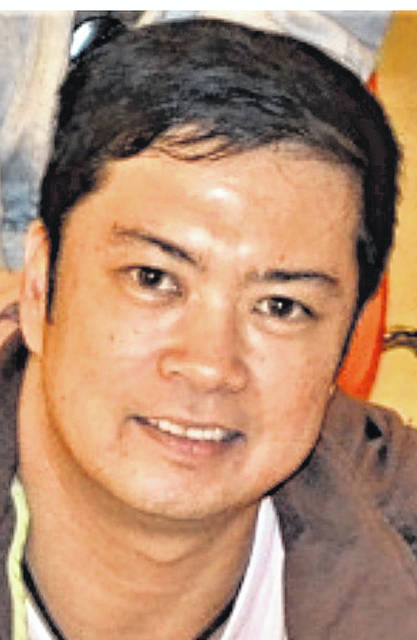
“When You Do Wrong, Jesus Rescues” — is a theme of Vacation Bible Schools this summer. I thought it is a laidback topic as it is designed for kids. But as I began to think about it, sweat formed on my forehead. I thought to myself, “This is not easy. It’s problematic!”
Why do I say this?
Well, the first part, “When You Do Wrong” is something I do not want to talk about. It would point at me. My wife, Apple, would say, “That’s you my love!”… and the list of things where I did wrong might surface again.
That’s just the tip of the iceberg.
The real dilemma lies on the theme itself: “When You Do Wrong, Jesus Rescues.”
It is not the norm. It’s actually the opposite of what we were taught. It’s the reverse of what we experienced when we were children, and of what we experience at present.
What happens when we do wrong?
We get? … punished! At the least, we get scolded. At the worst, the wrongdoer gets isolated and hated.
The wrongdoer does not get rescued. He gets chastised and penalized. This has been society’s mindset then, and it is the mentality now. It is not only engrained in our psyche. It is built-in into our rules and laws.
No wonder, many would feel no compassion to the wrongdoer when he is punished or when something bad happens to him.
When I was a kid growing up in a small village in the Philippines, there are times when we playmates get into a fight. The reason for the fight is usually because of the accusation “They did something wrong to us”. And when something happens to the kids who wronged my side of the camp, like when he gets spanked by his mom, we would say, “Buti nga sa ‘yo!” (in English, “Good for you – you deserve it!”)
When we do wrong, our immediate thinking is that it is something to pay for rather than it is something to be rescued from.
Aren’t we adults in the same boat? We say, ”They did something wrong…for heaven’s sake they broke the law, they should be penalized for it!”
Wrongdoing equals punishment.
Such an ethos is foundational in any society. There is good in it. Chaos is averted and order is preserved. The basic right to freedom is safeguarded.
The danger, however, is when we forget that while such a principle governs secular society, the same does not necessarily need to rule the heart.
Allowing it to do so leads to a moral dilemma when it comes to the placement of our compassion. “Should I help only good people?” “Should I look for the lost sheep?” “Should I care for the criminal?” “Should I love my enemy?”
The Christian is not spared by this and is similarly torn. “Should I visit those in prison? Should I support the jobless who got fired for a slipup? Should I lend a hand to the homeless who squandered his wealth? Should I help those illegally crossing the boarders who are getting separated from their families? Should I even care for the addict, the molester, the rapist, the liar, the murderer, the thief?”
The world has no easy answer. Yet perhaps, if we, even just for a brief moment, turn our glance to Calvary, we might find a remedy to our quandary. There must be something there that could shed light to a clouded mind, soothe the aching heart and calm a dithering spirit.
I am tempted here to expound on the heavenly and victorious words said by the One hanging on the cross, not to mention my favorite, “Father, forgive them…” But I found peace in simply being reminded that THE CROSS is sufficient. It needs no further explanation – even as the healing and salvation that flowed from there know no bounds.
Instead of the world, each of one of us – sinners, illegals and criminals on the scales of the holy and divine – being meted with punishment and death, the God named JESUS met us with love.
Will this be enough to melt the hardened heart? Is it enough to quench an angry spirit and assuage a soul that cry for punishment?
It was enough for the thief hanging on the cross with Jesus (ref: Luke 23:32-43). To the repentance-imbued words, “Remember me when you come into your kingdom,” was given the mercy-saturated response, “Truly I tell you, today you will be with me in paradise.”
Here lies our only hope. Seek as we might, in all our humanly wisdom and power, there is no place in the whole universe where we can find the same.
It’s a gift that is meant to be shared with others.
Christ has us shown the way, the truth and what it means to genuinely live and to be graciously redeemed.
Only when we forgive, can we truly be a Christian.
Only when we love, even the wrongdoer, can we be human.
Only when we join in the Divine Mission to rescue, can we honestly consider ourselves rescued.
“Rescue the perishing
Care for the dying
Snatch them…from sin and the grave
Weep o’er the erring one
Lift up the fallen
Tell them of Jesus the mighty to save!”


